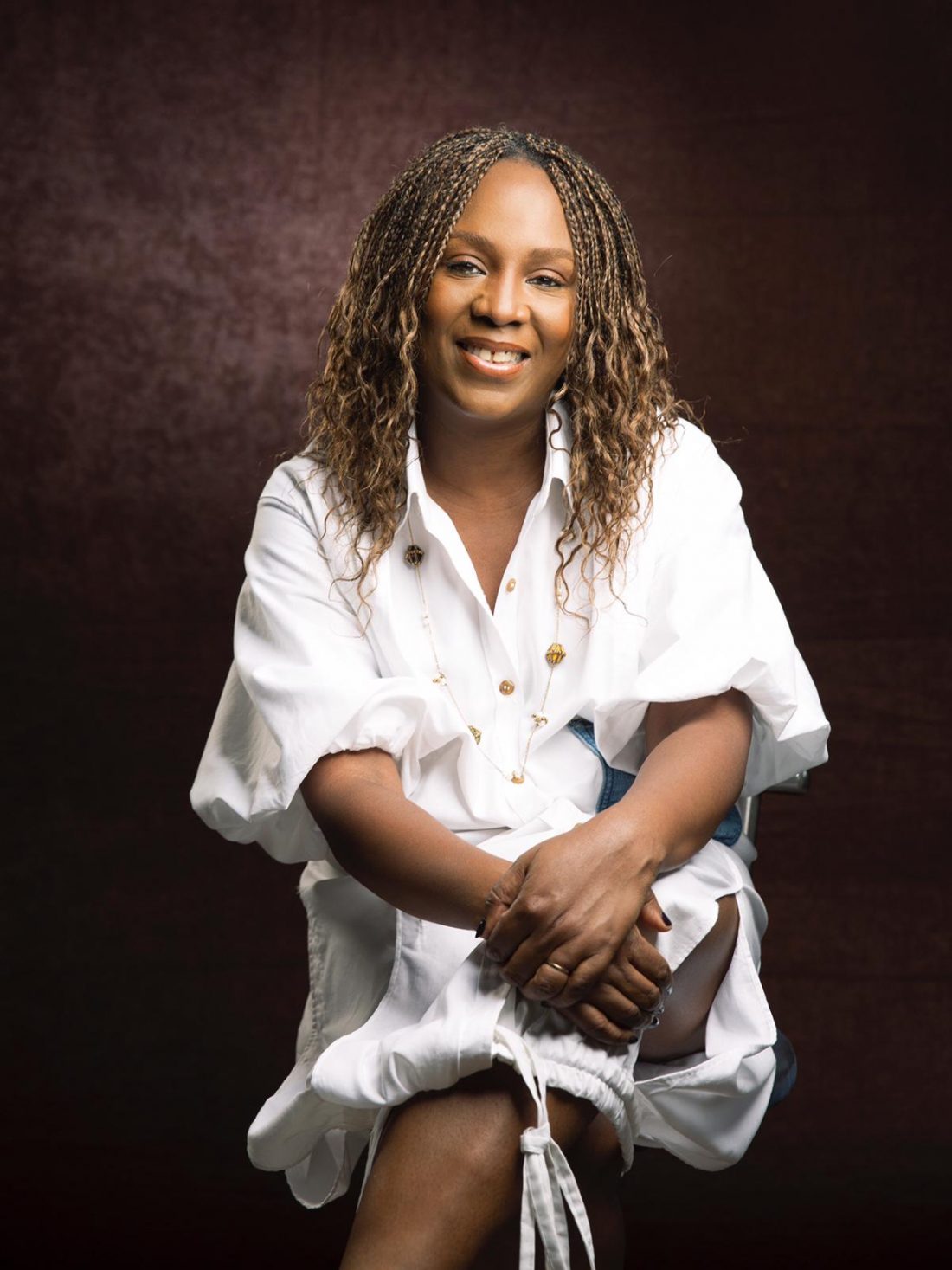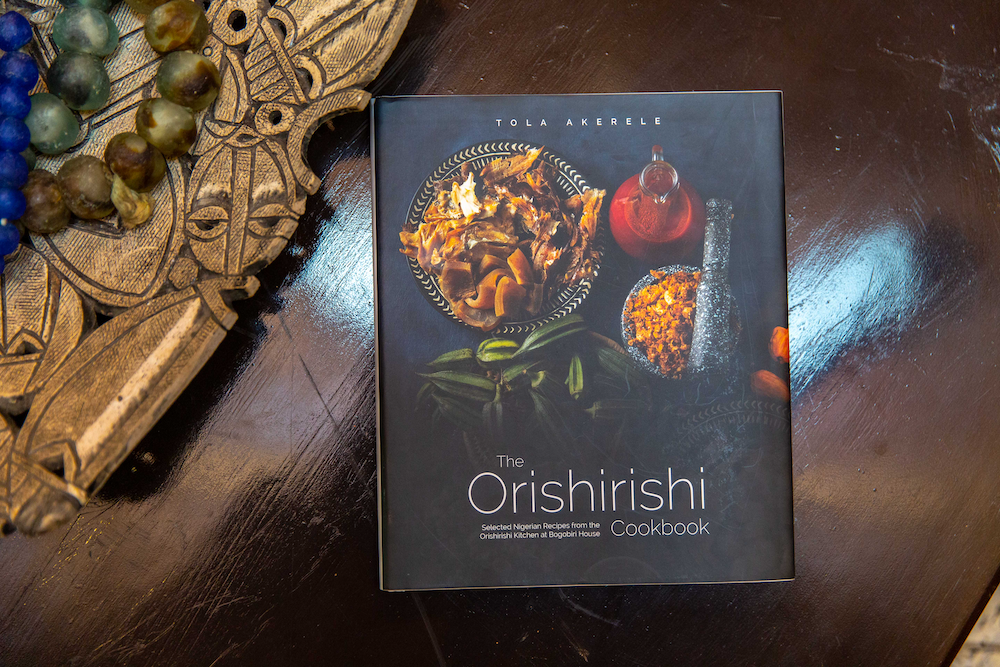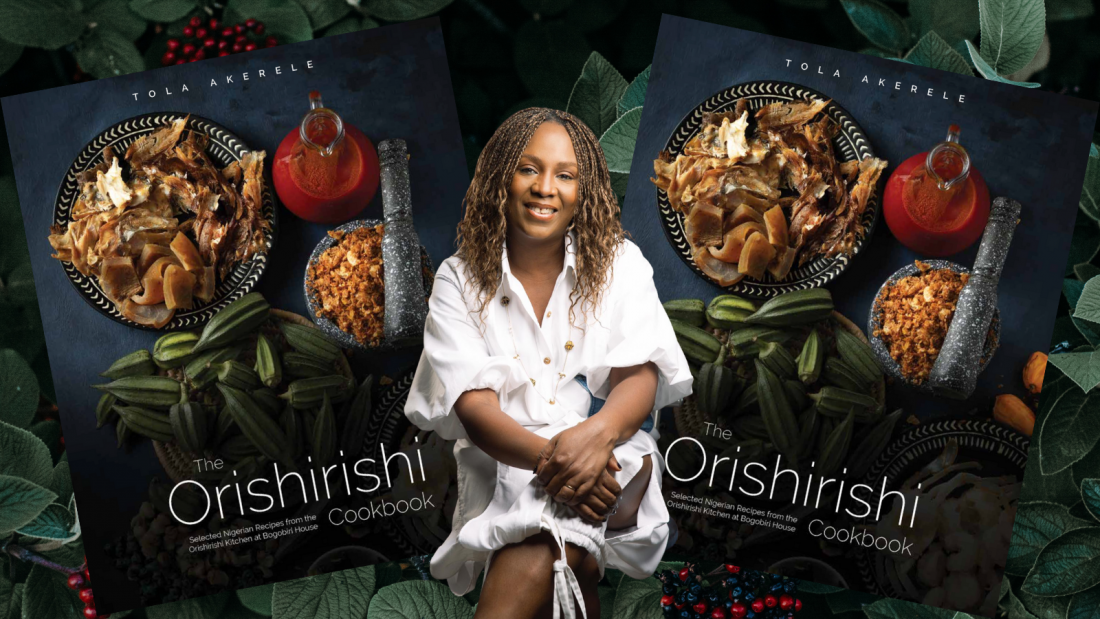The phrase ‘food porn’ is bandied around all too easily these days, but Tola Akerele’s The Orishirishi Cookbook, which celebrates Nigerian cuisine, really does deserve this title.
The Orishirishi Cookbook is a stunning coffee table/recipe book born from Tola’s passion to share her love for Nigerian foods with the world. The book’s release is timely. With the ever-expanding worldwide recognition of all things African, now is the perfect time to really put African cuisine on the map.

Nigerian businesswoman, Tola walked away from a career in investment banking to establish her successful businesses, an example being her popular boutique hotel, Bogobiri House which welcomes both local and international guests.
Her latest venture, The Orishirishi Cookbook is a celebration of culinary experiences from around the West African region and aims to normalise the country’s cuisine across the globe. In fact, the name of the book gives a clue on what readers can expect, ‘Orishirishi’ is a Yoruba [Nigerian language] word for ‘variety.’

The simple, easy-to-follow recipes in the cookbook will appeal to all good food lovers, not just those who are Nigerian. Lagos-based Akerele even made sure to include information on where to find the ingredients for readers in the UK, Canada and the US.
Keen to learn more about the author and her superb coffee table book, we interviewed married mum of two, Tola Akerele to find out about her book and why she thinks Nigerian cuisine isn’t more widely known on the world food stage.
What inspired you to publish a book about Nigerian cuisine?
This idea has been in the works for a while now, beginning with The Orishirishi Kitchen – an African-themed restaurant in Bogobiri House. Drawing from my personal travel experiences where I discovered a diverse range of Nigerian dishes, I saw a need to share this beauty with the world. Thus, The Orishirishi Cookbook was born to provide a comprehensive guide into Nigerian cuisine, from sourcing ingredients to some of the most practical Nigerian cooking tips. I was also thinking about how relevant it would be to Africans in the diaspora nostalgic for recipes from home. I sought to document these recipes as a way of celebrating the richness of Nigerian culture, vastly expressed through food.
Why do you think Nigerian cuisine isn’t more widely known on the world food stage?
We have not been able to package our food in a way that will be presentable to other nationalities. Many of the Asian dishes we see in the West have been adapted for that market, separate from their original versions. We need to find a balance: making the food accessible without compromising the distinctiveness that makes our food peculiar to us. Over time, we have seen pockets of this improvement in the US and UK, but mainstream access to Nigerian meals is still limited. Our food is diverse, with a lot of amazing dishes that many would enjoy. We need to present these dishes in a way that is appealing to look at, so you are enticed to eat it. There is no reason why jollof rice cannot become a mainstream dish for instance – just needs the right marketing. This is one of the reasons I wrote the book and invested a lot in the visuals.
View this post on Instagram
On a scale of 1-10 (1 being easy and 10 difficult), how difficult are the recipes for newbie cooks?
I would say an easy 3/10 because the recipes are not difficult at all. In addition to the carefully curated recipes, it features vibrant imagery to guide you through each process and a tips section where you can find interesting Nigerian cooking hacks.
Is your book for Nigerians, non-Nigerians, or both?
The book was written to cater to Nigerians and Non-Nigerians alike. As long as you have an appetite for culinary adventure, you will definitely enjoy The Orishirishi Cookbook.
The book is truly beautiful, with vibrant imagery of food and Nigerian culture. What was the process of putting it together, and did you have support?
Thank you! I am really grateful for the support of a solid team that helped bring it to life. I resolved to start writing the book during the first lockdown and within a year, it was finished, edited, re-edited, and ready for publication. I was able to spend time getting a good editor, graphic designer and printer. They were all admirably patient throughout the rigorous process it took to align the book with the vision I had for it.
Who did the food photography?
It was shot by a super talented Nigerian food photographer, Anjola Awosika. You can view his works on Instagram @anjola.awosika.
View this post on Instagram
What was the most challenging aspect of putting the book together?
My biggest challenge was finding and vetting the right measurements for the documented ingredients in the cookbook. We are not people who are used to measuring every single ingredient to the T. We started off using kilograms and litres but had to convert this to US measurements too. However, after some of research, I was able to come up with measurements that worked in line with the serving recommendations written in the book.
Tell us about your background. How did you learn how to cook?
Coming from a family of diehard foodies, food was an effective bonding glue for us while growing up. I first became fascinated with cooking from watching my mother in the kitchen, and gradually, I took up some culinary skills. However, it was not until I got into the university that I began to spend more time cooking. I really enjoyed sharing Nigerian cuisine with my friends from other parts of the world.
What is your earliest memory of food?
We used to visit my grandmother in Ife, Osun state and I remember the smoky aromas of the food from that house in particular. This aroma, combined with the distinctive taste, was as a result of how the food was prepared. My grandmother used to cook using firewood and charcoal, and the effect of these on my tastebuds is something I still clearly remember.
Tell us about Bogobiri House. What can visitors expect?
On the surface, Bogobiri House is a 16-room Boutique Hotel located in Ikoyi, Lagos. However, over time it has become a cultural melting pot for diverse Nigerian stories. From art, food, design, and lifestyle, Bogobiri House speaks to the richness of our heritage that is sometimes hard to find.
Visitors can expect a homey ambience with afro-rustic design. They can either enjoy special delicacies from the Bogobiri House menu or The Orishirishi kitchen. We also offer staycation packages that involve art classes, live music, spa treatments, a tour through the Nimbus gallery, dance classes and lots more. Not to mention that every Thursday, we host an Open Mic Night, a great platform for emerging art to showcase their talent, it ranges from music to poetry and spoken word.

What is your cultural background?
I am a very proud Ondo state indigene, Owo specifically. My mum is from Ife, Osun state so growing up I spent holidays between the two. I am fully Nigerian, but I grew up in the UK. I spent 20 years studying and working in England so definitely have some of that culture too.
The Orishirishi Cookbook would make a lovely gift for family members, friends and those in the diaspora intrigued by African food.
















1 comment
Love this book… Because we printed it, binded it and shipped it, we had great team work with designer and author, Tola. Anyone would like to know more about Cooking Books Printing or other printing we can offer, you can contact me directly via email apollo.xiaobo@gmail.com or WhatsApp: +86 13512127905 anytime, anywhere. More on http://www.call2print.com